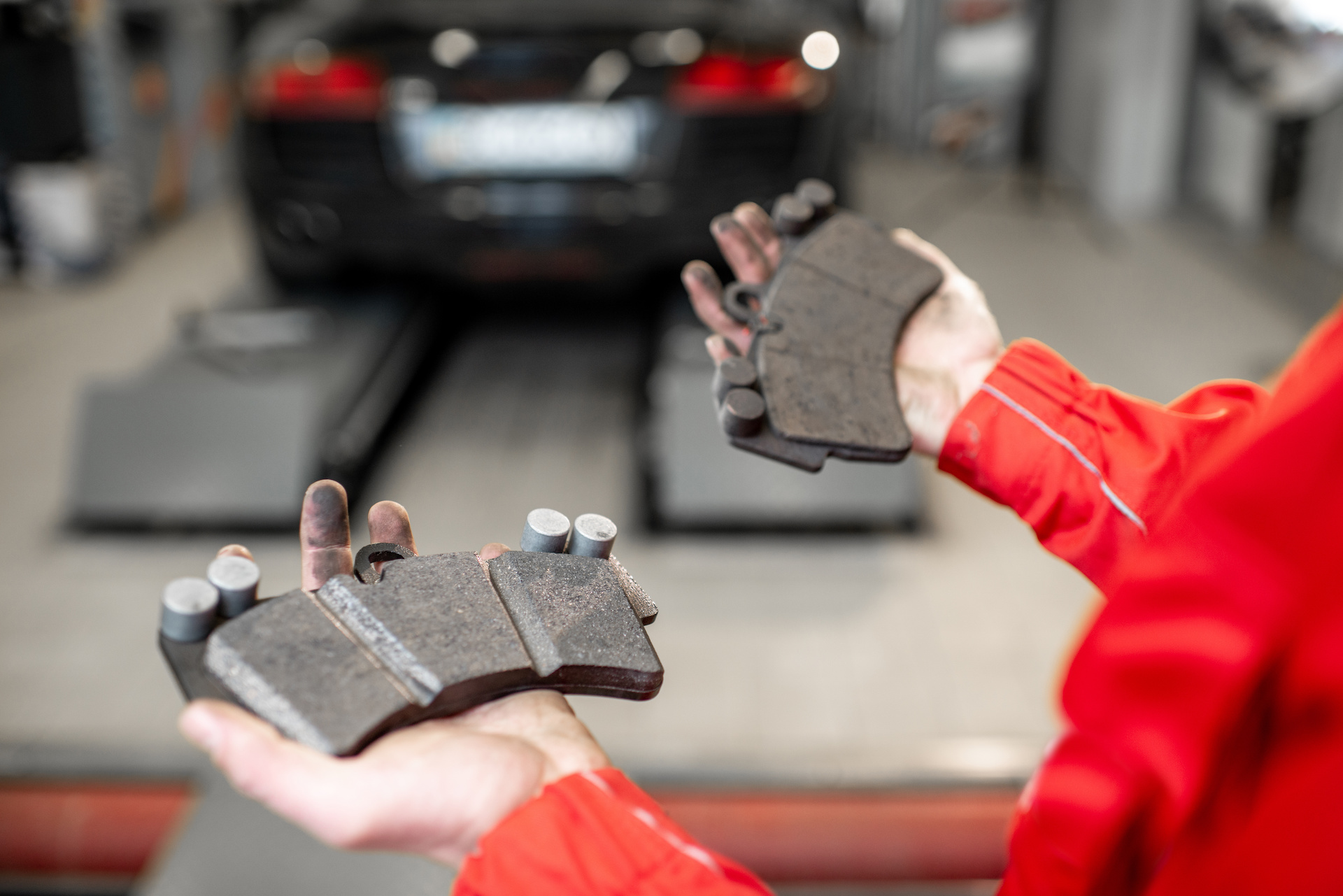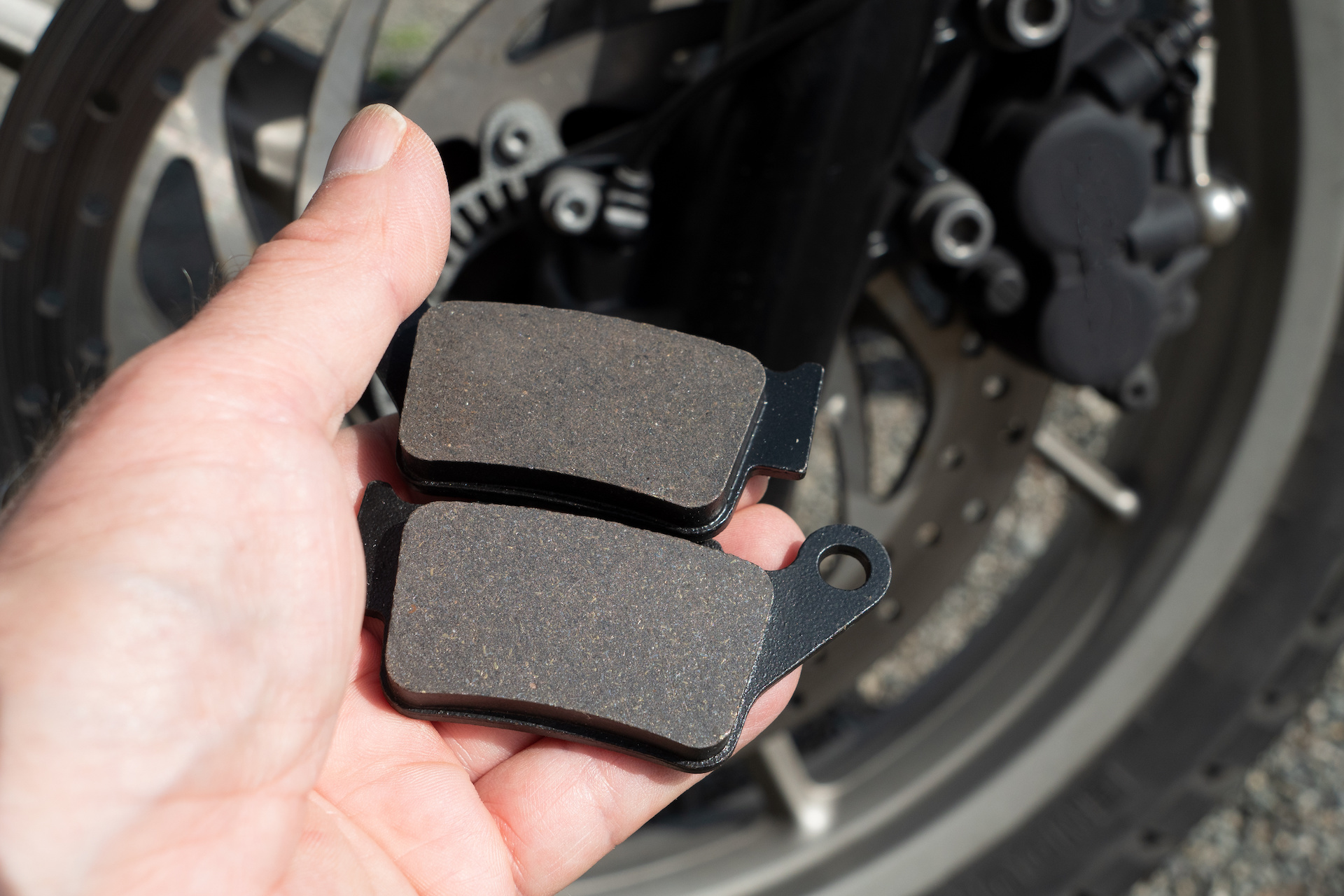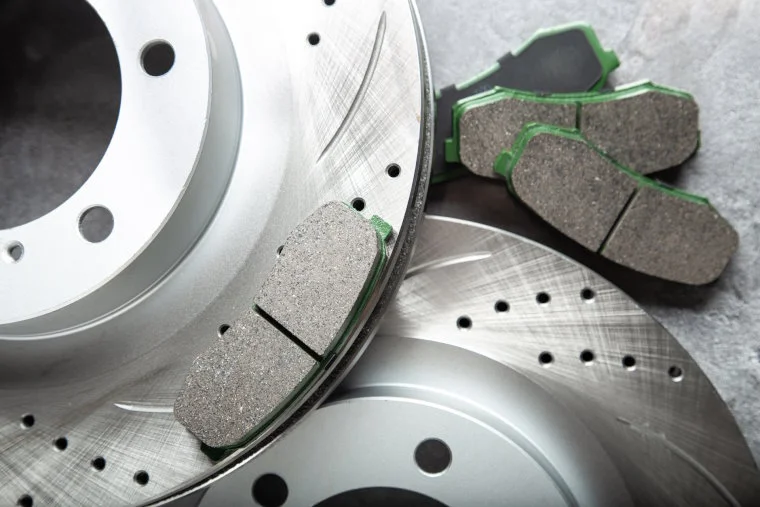How Long Do Brake Pads Last & When To Replace Them
Jack Dreyer | Friday 18th June 2021 10:25am

Brake pads are a vital component of every vehicle. They allow you to stop safely in a range of situations and are crucial for avoiding collisions.
The pads, fitted in the caliper, are pushed into the sides of the brake disc when you press the brake pedal, and the resulting friction allows you to bring the car to a stop.
It follows, then, that keeping your braking components working properly is an important safety concern. Brake pads can wear out over time and should be checked regularly for the safety of yourself and others.
Itís good to have an idea of how long your brake pads will last (as well as when to replace them), and most manufacturers say their pads last somewhere between 30,000 and 70,000 miles. But itís important to keep in mind that this depends on a range of factors - weíll outline these below.
The Type of Brake Pads
Organic Brake Pads
These brake pads use materials containing non-metallic fibres (mostly fibreglass, rubber, and Kevlar). They are quiet and cheap, but are only suitable for normal daily driving and wonít last a particularly long time.
Metallic Brake Pads
The material of these brake pads lends them durability. Low-metallic brake pads can be rather noisy, but their longevity makes them more desirable than organic ones.
Similarly, semi-metallic brake pads - made up of fused metal particles - offer very efficient braking performance, but their material quality may wear the brake discs down a little faster than other kinds.
Ceramic Brake Pads
These are the longest-lasting of all types of brake pad. They are much more resistant to wear, with ceramic being very strong and able to withstand a wide range of temperatures.
Ceramic brake pads are ideal for those looking for supreme braking performance and durability, but they do come with a price tag.

Driving style and condition
As we said above, how and where you drive also impacts the longevity of your brake pads. Itíll come as no surprise that the more miles you clock up behind the wheel, the faster you can expect your brake pads to deteriorate. Each time you put your foot down to slow your vehicle, youíre causing additional wear. This logic also applies to other parts of your vehicle such as the tyres and suspension.
However, itís not only the distance you travel that affects how quickly these components degrade. The types of roads you tend to travel on and your driving style will also have a big impact on wear and tear.
If you make most of your journeys on motorways, you should find that you cause less damage than if you spend a lot of time driving around cities and making shorter trips. This is simply because, on motorways, thereís less stopping and starting. The number of passengers and the loads you carry in your car will have an impact too. The heavier your vehicle is, the more strain youíll place on your braking system.
Consider your driving style as well. If youíre heavy-footed on the pedals and tend to stop suddenly, you can expect to cause more damage to your brakes than if youíre cautious, anticipate the traffic ahead and lower your speed gradually in advance. Meanwhile, when you see junctions, roundabouts or turnings ahead and the road conditions allow for it, itís beneficial to take your foot off the accelerator and start to slow down before you have to apply the brakes.
You may be surprised by the impact these factors can have on the longevity of your brake pads. Whereas a set may last you upwards of 60,000 miles if you mostly stick to motorways and drive sensibly, you could find you need to replace these motoring must-haves after just 25,000 miles or even less if you predominantly travel in town or you have a habit of driving aggressively or erratically.
Brake pad maintenance
To get the most miles out of your brake pads, you should consider the best ways to maintain them. Having your brake pads checked once a year and replacing them if necessary is crucial for your safety and the longevity of the other braking components.
Make sure you also check your brake fluid regularly and listen out for warning signs surrounding your braking, including noises, slower braking times, or an unusual feeling when pressing the brake pedal (more on this later!)

When should you replace your brakes?
Knowing when to replace your brakes might seem like something best left to the experts, right? Well, not necessarily. While you should leave any safety-related decisions down to the professionals ó especially when it comes to your brakes ó there are some tell-tale signs that let you know it is time for a replacement soon.

Because there are no hard and fast rules in terms of how many miles youíll get out of your brake pads, itís vital that you can spot these warning signs.
Look for lights
Many newer models of car are fitted with sensors that will tell you if the front or rear sets are getting worn down to below a safe level. If you have a vehicle like this, keep an eye out for the relevant warning light on your dashboard. If your car doesnít have these sensors, youíll need to make sure you get your brake pads checked on a regular basis.
Find out what to do when your brake light comes on here.
At Kwik Fit, we recommend that motorists whose annual mileage is around 8,000 miles or more a year should get their braking systems assessed at least twice a year, before long journeys and ahead of MOTs.
Listen for grinding sounds
Whenever youíre driving, listen out for a screeching or grinding sound when you slow down or stop. This is a strong indication that you must replace these vehicle components. Also, if the brake pedal vibrates when you depress it, this may signify that the pads are warped due to heat and need to be replaced.
Feel for movement
Another tell-tale sign of damage is your car pulling to one side when youíre driving. If your car pulls to the side when you drive, especially when you brake, it is likely to have a problem with the braking system. This might take the form of a caliper that is sticking or a faulty wheel cylinder.
What to do when you need a brake replacement?
If you spot any of the warning signs above and think itís time to replace your carís brake pads, itís important to go to a professional technician.
Always remember that these vehicle components are essential when it comes to safety, so they must be fitted by a trained expert. Bear in mind that if you have new brake pads fitted, youíll need to make sure they Ďbed iní. Your technician will be able to explain this process to you and provide you with advice on how to do it. For safety, drive with extra care and attention for the first 300 miles or so until these new pieces of gear have bedded in properly.
At Kwik Fit we have over 600 brake specialists across the country who can ensure this safety system is doing its job properly. If youíve not had your brakes checked in a while, or youíre concerned that you might need some new ones, why not book in for an inspection with our friendly team at a centre near you?
Any facts, figures and prices shown in our blog articles are correct at time of publication.
Featured Articles
Is it Illegal to Drive With One Headlight?
Saturday 19th July 2025
Wondering if itís illegal to drive with one headlight? Learn about the safety risks and penalties of illegal blown bulbs and why you should fix them promptly.
Air Con in EVs & Hybrids: Experts Answer Your Questions
Monday 30th June 2025
Does air con drain EV batteries? Can you use the air con while charging an electric car? Find out the answers to these questions & more from Kwik Fitís experts.
Why Is Your Car Making a Noise? Fixes & Tips
Friday 13th June 2025
When your car starts making unexpected noises, it can certainly be quite disconcerting; it may be nothing to worry about, but hereís what you need to know.









